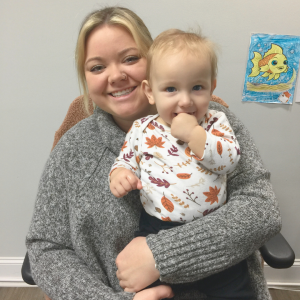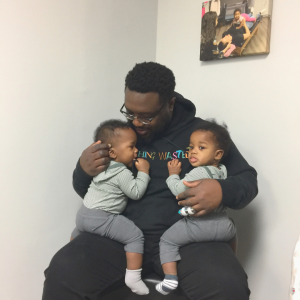 Like so many other developmental challenges in kids, witnessing your child struggle with speech delay can be such a heartbreaking and frustrating experience. It not only affects their communication skills but also leads to social and emotional challenges as they find it difficult to express their needs and emotions.
Like so many other developmental challenges in kids, witnessing your child struggle with speech delay can be such a heartbreaking and frustrating experience. It not only affects their communication skills but also leads to social and emotional challenges as they find it difficult to express their needs and emotions.
Whether your child has been diagnosed with a speech delay or you suspect one, this blog aims to shed light on the science behind speech delays. Additionally, if your child is receiving speech therapy services but is still struggling or has plateaued with their results, we’ll get into how often traditional therapy is fantastic but not able to fully address the root cause. We’ll break down the neurology behind speech delays in kids and provide actionable steps to address the root cause.
Understanding Speech Delay
As parents, your child’s first words are so eagerly anticipated. Few things can compare to first hearing your little one say “Mommy,” “Daddy,” and “I love you.” So as time goes on, and those milestones are missed, disappointment and confusion set in. This is a common scenario for parents dealing with speech delay.
Speech delay occurs when a child’s language and communication skills develop more slowly than expected, which is actually an indication of stress or interference within their brain and nervous system. Children with speech delay may have individual words but struggle to string them together and form clear sentences.
Traditional pediatricians often attribute speech delay to “bad luck” without providing a comprehensive explanation. Speech delays are most commonly an issue with the “physical” formation and execution of speech, especially once other neurological disorders or hearing challenges are ruled out.
The Role of Birth Interventions (Trauma) and Speech Delay
By far and away, the most common but massively overlooked correlation we see with speech delays in our practice is the connection between birth interventions and trauma. Birth interventions such as forceps, c-sections, vacuum extraction, and induction can contribute to speech delays, especially in severe cases like apraxia of speech. Chronic ear infections, torticollis, and plagiocephaly, often linked to birth interventions, play a crucial role in understanding the root cause.
These types of delivery methods put tremendous pressure and physical tension on the cranial nerves, brainstem, upper neck, and vagus nerve. This results in a neuromuscular dysfunction known as subluxation. Subluxation is a neurological dysfunction that creates interference or disrupted communication between the brain and body, specifically affecting the nerves and muscles that control speech perception, formation, and execution.
The Role of Pediatric Chiropractic Care in Speech Delay
At New Hope, our chiropractic approach doesn’t aim to treat or cure your child’s speech delay. Instead, our focus is on addressing the root cause – neuromuscular dysfunction and interference. We collaborate with you and other providers to create personalized care plans rather than recommending and doing the same thing for each child simply based on their delay or diagnosis. We know that each child is unique.
While witnessing your child struggle with speech delay can be disheartening, addressing the root cause with Neurologically-Focused Chiropractic Care can be so rewarding. To learn more and ensure your child gets back on track, schedule a consultation with our PX Docs at New Hope. If you are not local to us, be sure to check out the PX Docs directory to find an office near you. We are ready to help you unlock your child’s full potential by getting to the root cause of their speech delay.

